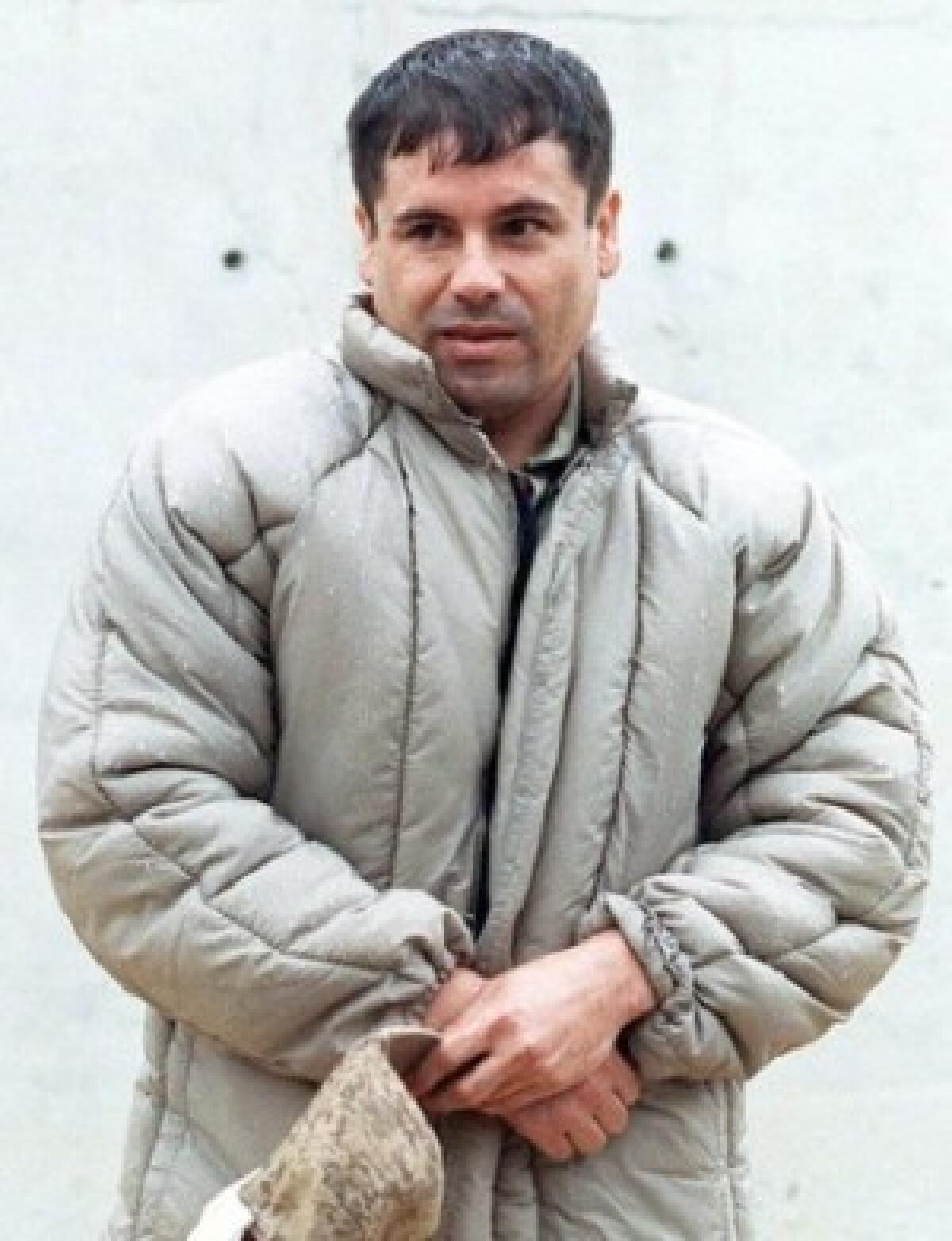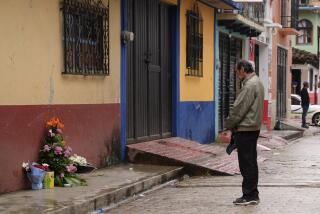Drug cartels keep Catholic officials in fear

Reporting from Mexico City â In the tense state of Durango, Roman Catholic Archbishop Hector Gonzalez announced over the weekend that the fugitive drug trafficker who tops Mexicoâs most wanted list was living nearby.
And everyone knows it, he added. Except, it would seem, the authorities, who fail to make an arrest.
A shocking revelation indeed. But in Durango, most local newspapers and television stations declined to report the comments, and for some reason national papers that contained the remarks did not appear on many newsstands.
Was the prelate being censored? âWe have no information on that,â a Durango government spokesman insisted.
Gonzalez undoubtedly embarrassed regional authorities in Durango, some of whom have long been rumored to be lending support and protection to the fugitive Joaquin Guzman, alias El Chapo, or Shorty. The billionaire head of the powerful Sinaloa cartel has been on the lam since escaping from a high-security Mexican prison in 2001.
Sinaloa and Durango are adjacent states, part of what is known here as the Golden Triangle, a rugged patch where Guzman is believed to be holed up.
As legislators demanded an investigation and associates expressed concern for Gonzalezâs safety, church officials said they were taking steps to protect the senior cleric.
Father Manuel Corral, a spokesman for the Mexican Bishops Conference, said Monday that priests in eight Mexican states have been threatened with harm or death, presumably by drug traffickers. Although the threats are anonymous, he said, most come via missives and third-party go-betweens when priests have attempted to turn members of their parishes away from the traffickers and use of drugs.
âItâs always when the priests denounce violence, injustice and crime, or when we try to get our people to leave the narco-menudeo,â or drug street sales, Corral said in an interview.
A small number of priests have had to be transferred from their churches because of threats, but most traffickers remain discreet.
However, the potential danger hurts the churchâs work, he said. âThe fear is there.â
The Catholic Church has a complex position in Mexico. It officially supports the Mexican governmentâs war on drug traffickers but laments the spiraling violence. In some parts of the country, priests have been willing to use money from traffickers to pay for church repairs or other community projects. One senior priest was even quoted praising drug lordsâ propensity to tithe.
Ismael Hernandez Deras, the governor of Durango, said in a communique that if Gonzalez really has information on El Chapoâs whereabouts, he should report it to the attorney generalâs office.
He added: âBy the same token, the attorney generalâs office should guarantee the physical integrity of the archbishop.â
With the pressure mounting, Gonzalez dropped out of sight, at least temporarily, missing a âpeace and justiceâ march that he had convoked. Then on Monday he issued a written statement in which he apologized if he had âscandalizedâ anyone with his assertions.
âThey were based,â he said, âon what people say, speaking to their pastor.â
Cecilia SĂĄnchez of The Timesâ Mexico City Bureau contributed to this report.
More to Read
Sign up for Essential California
The most important California stories and recommendations in your inbox every morning.
You may occasionally receive promotional content from the Los Angeles Times.











